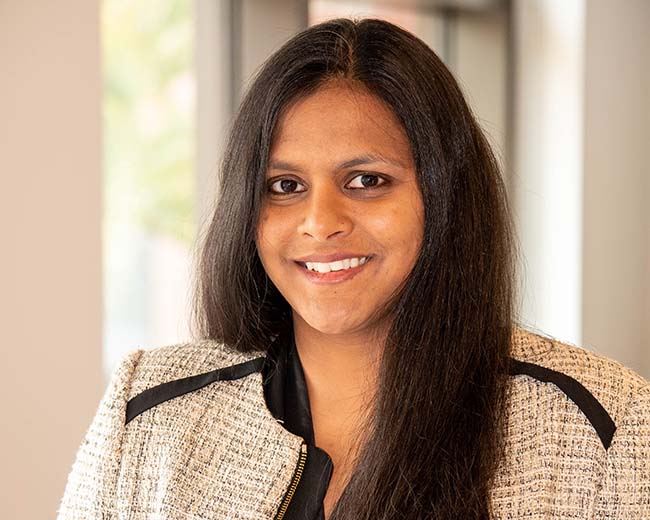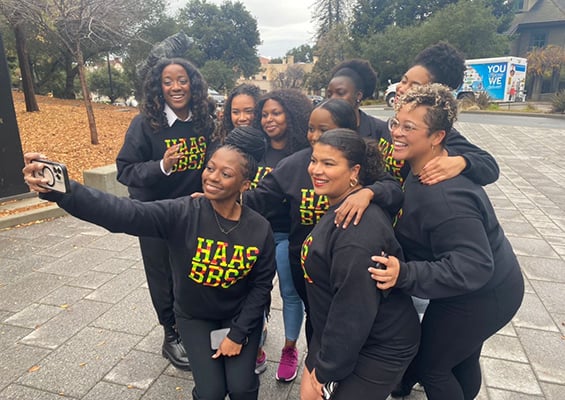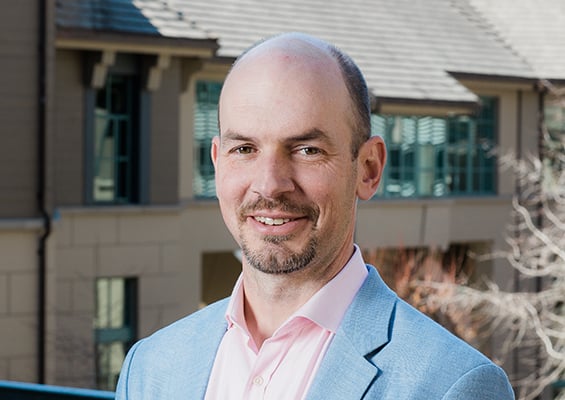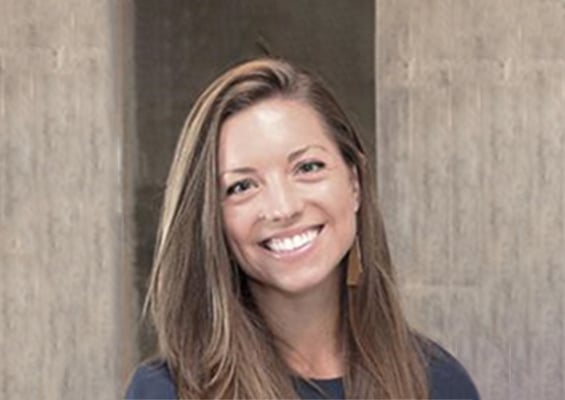The McKinsey partner talks about the art and satisfaction of consulting, the proper role of a leader, and how Berkeley Haas helped shape her future.
When asked for the first thing that comes to mind when she thinks of you, a friend says that it’s intensity. How does intensity contribute to your success, and do you ever need to pull back?
I think personality traits are at least partially responsible for where you end up in life. Intensity is an innate characteristic of mine. I hope it’s not in an overbearing way but more about being passionate. I’m really excited to do what I’m doing, and my battery doesn’t seem to run out.
Do I have to throttle back sometimes? Absolutely. It’s situational. But at McKinsey, we’re less about the individual and more about the team. Before every engagement, we have an open dialog where I tell my team to be open with feedback on what’s working and what’s not. So with my intensity, my team members know that if we’re working too hard, or if it’s getting late, they can call me out and say, hey, we can do this tomorrow.
Was an MBA always part of your plan?
Not at all. When I was working at GE, I understood my role and the work I was doing as an individual contributor. But I realized I didn’t know the entire company; how it worked and all fit together. I wanted to know, ‘what does the CEO wake up and think about every day' and I thought an MBA would be a starting place.
Why consulting rather than a specific field like corporate finance or private banking or M&A?
Again, for the broad view, but there are other reasons too. Consulting gives you the ability to be an impact partner – from strategy to implementation. And it’s highly collaborative, dealing with people from multiple functional groups. My work has allowed me to explore many geographies and disciplines. Most important is the people. They are extremely diverse in terms of background, culture, and gender, so I continue to learn.
As a consultant, what keeps you up at night?
I spend a lot of time thinking about what it’s going to take for my client to change. And that’s not an easy question. You have to define what’s going to change, figure out how to motivate change at multiple levels in the organization, and build the capabilities necessary. The secret is to co-create the answer from the beginning. It has to be a team, your client and you, all the way along from strategy to implementation. Then you have to be able to demonstrate the change will work. Not just saying, this is the answer, but a demo, a pilot. Don’t take my word for it; let’s try it out.
How do you define yourself as a consultant in a leadership role?
First, as a leader I am most naturally excited about problem solving. What is the million-dollar question we’re trying to unlock? How do we answer this question for our client to have an impact? Second, I like to be entrepreneurial and I get to define entrepreneurship in my own way. I got to start our digital practice in Mexico City, which was about helping the CEO or CIO discover how technology will enable their strategy, solve their most challenging issues, and become their best weapon.
Tell me about the differences between being an individual player and a manager, a leader of consultants.
I believe that being a leader is more important than being a manager. Managing to me implies having to oversee someone’s work, telling people what to do in a minute way. The people I work with are extremely smart and effective. I think a leader’s defining qualities are being five steps ahead, making calls about outcomes, setting vision, and strategy. I don’t want to find minute errors, but instead look at how the work will create an impact. The second thing is to be more of an enabler than an overseer. I don’t need to watch over people’s work, but to prepare them for their next role, make them realize their potential.
How do consultants work outside their area of expertise?
That’s a good question. It comes down to asking yourself, what skills do you bring to the table. Of course, you need practical experience and expertise. But I think what consultants bring is the ability to identify clearly the problem we are trying to solve and the data that will help us solve it. Is it the market, the trends, the competition, whatever? We also bring independence and objectivity – the refreshing outside view, and the perspectives from other industries. That’s why consultants are valuable. It’s about peering around the corner and marrying that with insight.
Why an MBA at Berkeley Haas?
Oh, I could tell you the “right” answer. But the true answer is that at some level it was intuition and a combination of other things. I wanted to come to California. I was an engineer; it was my passion to work in technology, and I wanted to be close to Silicon Valley. I also wanted to go to an institution that had an emphasis on diversity, teamwork, and constant learning. My two years in Berkeley completely proved all of that out.
What is the most practical thing you learned at Haas?
I would say the defining aspect is how experiential and project oriented it was. As part of IBD, we spent a whole semester working with a nonprofit in Africa--COMACO, Community Markets for Conservation, a wildlife conservation group. Their mission was to reduce poaching. They found that one of the main issues was that because many farmers didn’t have a sustainable food source, they relied on killing wildlife. So COMACO recruited farmers and built a business model that taught sustainable farming practices: how to grow soybeans, rice, peanuts. The profits from their sales would get plowed back so the farmers had income and food security and didn’t have to rely on hunting wildlife. We worked on how COMACO could expand and stay competitive with other for-profit brands. It wasn’t academic. It wasn’t textbook. It was incredible.









